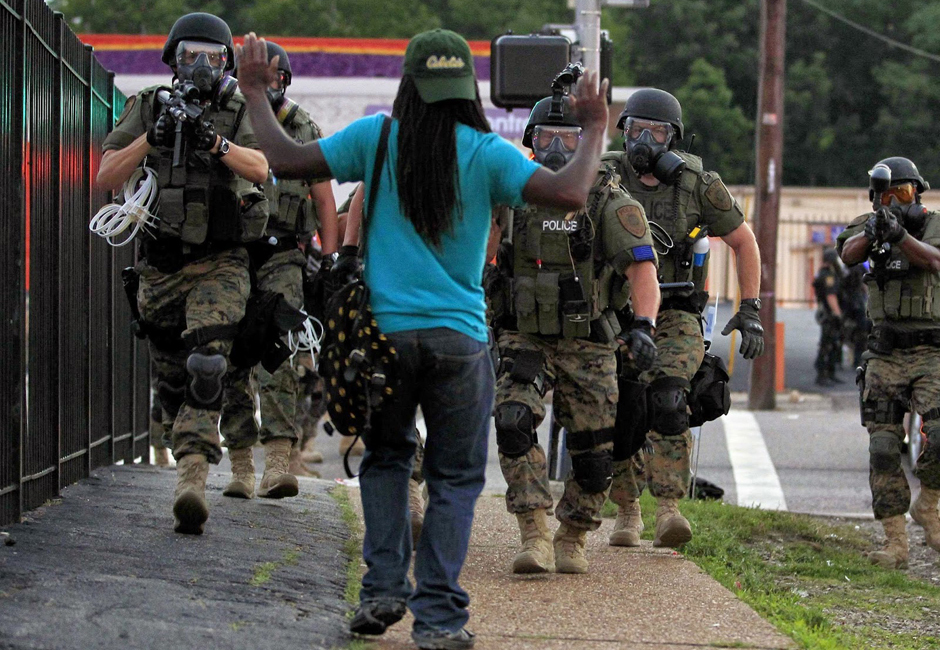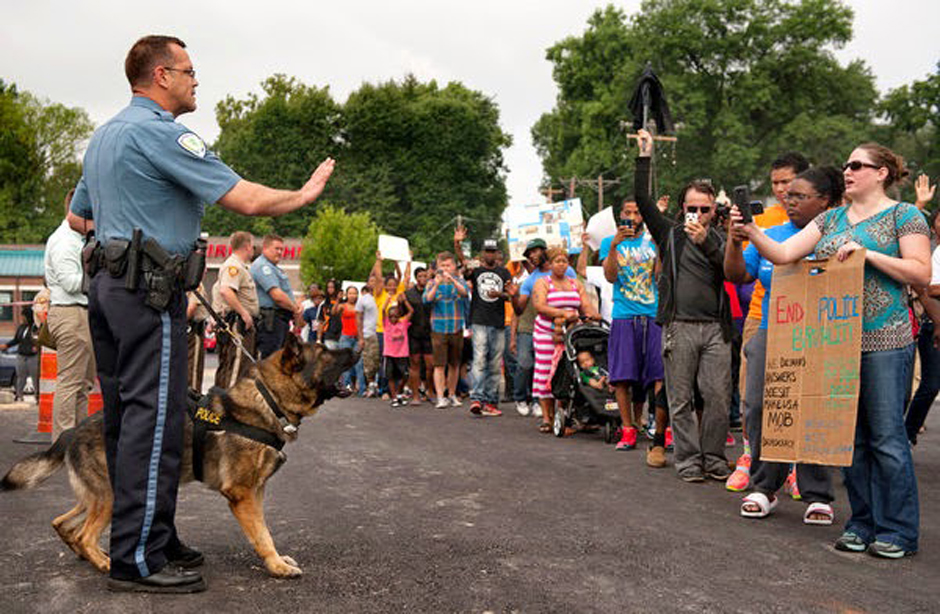There is a West Florissant in every city in America. We see them internationally as well.
On April 3, 1968 he gave what was to be his last public oration. Dr. King was assassinated the next day. The speech was entitled, “I’ve Been to the Mountaintop.” Many of us have heard excerpts from it, seen sound bites, maybe memorized passages and seen images taken of Dr. King from that evening. One of the most compelling aspects of this sermonic address was his use of the Samaritan parable. He gave it a contemporary flare for his time within the confines of the biblical narrative.
As the story goes, which is found in the Gospel of Luke(10:23-37), there was a man who was traveling from Jerusalem to Jericho. While on the road he was violently accosted by a band of robbers who stripped him of his possessions, including his clothing, and left him for dead. As he lay on the road badly injured, two men: a Levite and a priest, also traveling the road approached him, but did not stop to help. However, another passerby, a Samaritan, stopped and provided medical attention to the weary traveler. He even got the wounded man a room in a nearby inn so that he could recover from his ordeal peacefully. Jesus concluded the story by instructing his followers to be as the Samaritan was and “Go and do likewise.”
Dr. King submitted to his audience at the Mason Temple that night in Memphis that he imagined that the two holy men did not stop because they were possibly afraid. He explained that the “Jericho road is a dangerous one.” King visited the region with his wife, Coretta Scott King, in 1959. So he knew very well what the terrain looked like. He explained that he understood why Jesus used the road for the parable because it was a “winding, meandering road” that was set up nicely to ambush travelers. It has even been referred to the road as the “Bloody Pass.”
King continued his final moving speech, explaining that the two clergy could have been fearful because of the road’s reputation. Maybe the men who ambushed the traveler were still in the area, and could come back at any time? Maybe the traveler was no traveler at all, but a decoy that was feigning his injuries because he was in collusion with a band of thieves? King posed the question that ultimately had them thinking of self-preservation, “If I stop to help this man, what will happen to me?”
The question that the Samaritan asked, according to King was reversed. “If I do not stop to help this man what will happen to him?” King believed that was the question that was before his audience that evening as they were dealing with the Sanitation Workers Strike. He urged those assembled to think of themselves as the Samaritan in the parable. “The question is,” he argued, “If I do not stop to help the sanitation workers what will happen to them?”
What makes the parable so dynamic is that the injured traveler and the Samaritan were not of the same race or ethnicity and operated under different cultural norms. Certainly some biblical scholars might argue that there were deep-seated antagonisms between their peoples. Despite whatever differences existed the Samaritan saw a common humanity and for him that was enough. King went on to proclaim:
“We are called to play the Good Samaritan on life’s roadside… but one day we must come to see that the whole Jericho road must be transformed so that men and women will not be constantly beaten and robbed. True compassion is more than flinging a coin to a beggar. It comes to see that a system that produces beggars needs to be repaved. We are called to be the Good Samaritan, but after you lift so many people out of the ditch you start to ask, maybe the whole road to Jericho needs to be repaved.

Today we are faced with a similar situation. National and international news outlets and especially social media are covering the events surrounding the death of 18-year old Michael Brown in Ferguson, Missouri. In the last week we have been bombarded with images of his tragic death and the struggle for voice from a community that has been dealing with decades of maltreatment, despair, and socio-political and economic invisibility. They are as Howard Thurman brilliantly described, “people with their backs against the wall.”
Brown’s death has led to an outcry of protest and violence—primarily occurring to those who have been protesting peacefully. Indeed some businesses have been negatively affected by the unrest, as thieves have attempted to take advantage of this emergent movement. Also, citizens that live in that area have had to endure multitudes of people converging on their community, particularly their streets.
Most notably, a street named West Florissant has been the stage for this display of community love, anger, rage, mourning, and grief. It has also served as a backdrop for what is still wrong with America. West Florissant is a symbol for the unfinished business not just of the Civil Rights Movement, but also of expanding the freedoms promised to every citizen in this nation’s original founding documents. For many, including this author, Michael Brown’s death is hardly the exception; he has become the new face of rule of dehumanization.
This must end. This will end. West Florissant is America’s Jericho Road. That street is calling for everyone—residents, protesters, politicians and the police to transform that community so that women, men, and children will not be constantly bludgeoned and deprived not just by the inhumanity of police brutality, because that is only a symptom of larger the generational socio-political maladies of underemployment, poor-education, housing discrimination, systemic and deeply entrenched institutional racism.

There is a West Florissant in every city in America. We see them internationally as well. Scenes from Ferguson are on the front pages of periodicals worldwide. Ferguson is seen right next to stories about Gaza and unrest across the Middle East and the Ukraine.
Some are asking, “Is this America?” I am here to tell you that this has always been America. Let us end this Disney-esque façade for public consumption. Let us make America what it should be by the light of day and by the dark of night. It is time to have some real hard conversations, some real discourse among this nation’s citizens. We cannot wait for elected officials to have them for us. Once we begin doing this work, those who fail to heed our call should be removed from office—for they serve at the will of the people, not the other way around.
If it had not been Michael Brown it would have been some other young unarmed African-American young woman or young man. The question that too many are asking is “What happens to me if I stop to help the people of Ferguson?” That’s the wrong question. The question is, “If I do not stop to help the people of Ferguson and the family of Michael Brown and all the families affected by similar tragedies across America, what will happen to them?” That is the question.
Vernon C. Mitchell, Jr. completed his doctorate in American History at Cornell University in May 2014. His work primarily addresses the intersection of race, politics, and religion in America in the early decades of the twentieth century. His current project examines religious and political thought of African Americans during the famed Jazz Age. Through examining African-American religious thought during the earliest years of the Harlem Renaissance, Vernon is uncovering the role that African-American Protestantism played in the development of this cultural and intellectual awakening. Vernon C. Mitchell, Jr. heralds from the St. Louis, Missouri area.
This piece was republished by EmpathyEducates with the kind permission of the Author, Vernon C. Mitchell, Jr. We thank Vernon C. Mitchell, Jr. for his depth, and devotion to humanity.











Leave A Comment